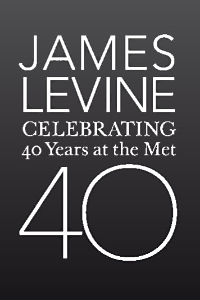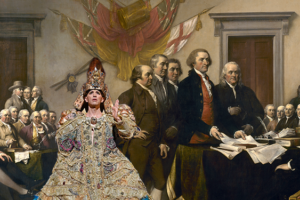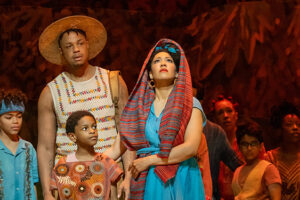

Troyanos-Domingo-Levine was originally to be Domingo-Milnes-Levine. However, reportedly Sherrill Milnes was going through something of a vocal crisis at the time and had to withdraw. Rather than cancel the sold-out concert, the Met brought the much-admired mezzo Tatiana Troyanos to pair with Placido Domingo in an evening of arias and duets. The entrance of the principals on this DVD has an emotional impact. As the beautiful, graceful mezzo glides onto the stage, followed by a handsome, ardent Domingo and James Levine, who literally bounds to the podium, I felt a wave of sentimental nostalgia.
The first thing that must be said is that the sound engineering with this DVD is superb. There is a wonderful brightness and clarity throughout the performances. Domingo is at his considerable best here. After years of hearing his vocal resources diminishing, it is refreshing to hear how golden his burnished tenor was in those heady days. I had actually forgotten how he could then attack high notes with delicacy, and how he could shape a passionate phrase perfectly. Troyanos sings as always with her lush, womanly mezzo, but I think the excerpts chosen for the DVD do not serve her as well as they do for Domingo. The programmed excerpt from her signature Charlotte in Werther is not included on the DVD; in the included duets from Cavalleria and Aida, her voice sounds one size too small, or maybe one size too delicate, for these heavy roles. She genuinely shines, however, in the happily included Act 1 duet from Norma, where her acclaimed Adalgisa was opulently displayed. Also very fine are Domingo’s” Ah si ben mio…” and Troyanos’ emotionally committed “O don fatale.”
The young James Levine conducts superbly, and one can read on his face how clearly he feels the music in his bones. However, he has one enormously annoying habit here—he frequently turns to conduct the singers while mouthing the words along with them! I can’t imagine that the singers like this. Interestingly, this does not occur in the Price-Horne evening, but returns again in the Domingo-Milnes.
The Price-Horne-Levine evening finds both ladies in resplendent voice. It is hard to believe that Leontyne Price was singing so well only a few years before her final Aidas at the Met. Marilyn Horne, concentrating at this time on her Rossini specialties, has astonishing technique. Her bone-lean mezzo tosses off incredibly flexible runs with utter ease. Her solo performances of Rossini’s “Non temer” and the Page’s aria from Huguenots are as close to perfect as I can imagine.
I remember a critic at the time called this a concert of “mismatched divas.” This proves true in the two duets included on the DVD. In “Fermati” from Handel’s Rinaldo, Horne is at home but Price finds it hard to navigate the sharp turns of the piece. In the Aida duet, Price is spot on, while Horne has lost a lot of vocal heft in her Rossini years, and her Amneris makes little impression. Oddly, neither of the Mozart selections are included in the DVD, nor is the “Mira o Norma” duet.
Price does sings a staggering “Pace, pace.” She seems to have all her vocal resources in top form here, and the aria is hauntingly beautiful, with all of Leonora’s despair in every note. Watch very carefully the end of the aria, the final “Maledizione.” You can see it in Price’s eyes: she knows she’s never sung it better, and so do we. The ovation from the audience is a long, almost elemental roar. Price also comes close to topping herself with her encore of Doretta’s song from Rondine with glorious high notes, singing with a longing that is deeply moving.
Levine and the superb Met Orchestra contribute a stirring rendition of the Overture to I Vespri Siciliani, and the concert ends with a delighted audience enjoying the Flower Duet from Butterfly as the final encore.
The Domingo-Milnes evening again finds the tenor in ringing, powerful voice. The highlight of this entire concert is Domingo’s hair-raising, goose bump inducing rendition of the Improvviso from Andrea Chenier, infused with all the poetic and political passion that this aria provides. Milnes, however, (perhaps because of his vocal difficulties the previous year) sings very carefully and only in climaxes does he appear to be fully secure. He sings from an odd chin-down-to-chest position the entire evening; this seems to constrict his baritone. He warms up throughout the evening, however, and is at his best in Forza’s “Urna fatale”. Still, his approach to character has an annoying sameness, with little difference between his Barnaba/Don Carlo/Iago (the excellent encore duet is Otello’s “Si pel ciel”, all blood and thunder).
The evening begins with the “Enzo Grimaldo” duet from Gioconda, with both men sounding as if they’re not fully warmed up. Later we have three duets from Forza with Domingo shining in all three while Milnes finally rises to top form for “Invano, Alvaro.” Levine and the orchestra contribute a beautifully led and played Forza overture as well as the Intermezzo of Manon Lescaut.
These concert DVDs are a tremendously valuable addition to the legacies of all the participants. Certainly no one who remembers the 1980s should be without them, and they would also make for a terrific introduction to opera for a beginner. It’s a long series of highlights and the highlights of highlights. Bravo to the Met for releasing them!
Latest on Parterre
parterre in your box?
Get our free weekly newsletter delivered to your email.























Comments